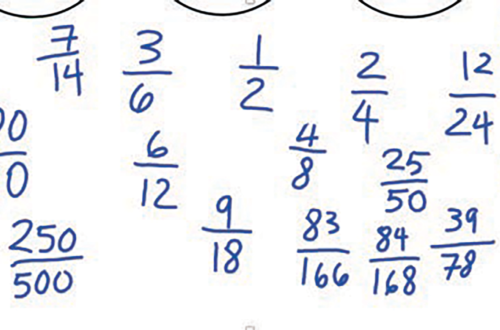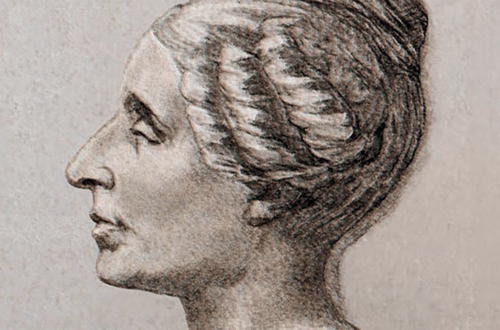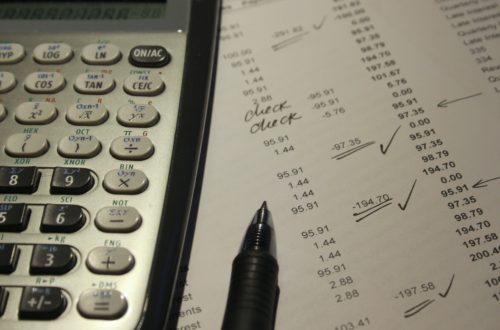Journal of the Mathematics Council of the Alberta Teachers’ Association
Volume 43 Issue 1, December 2005
This issue is the first to be peer-reviewed, and it represents the work of numerous people. First, I would like to extend my heartfelt and sincere thanks to those who volunteered to review the articles. I did not anticipate the length of time this process would entail, and their willingness to provide timely and helpful feedback was deeply appreciated. This publication would not have been possible without the strong commitment of these reviewers.
Second, I would like to thank the authors of the articles included here. They responded to reviewers’ comments with a willingness to edit and rewrite, demonstrated their desire to improve communication and were genuinely motivated to present provocative ideas to deepen our understanding of mathematics teaching and learning.
Third, I would have ceased in my editorial efforts had it not been for the substantial support I received from members of the MCATA executive. On many occasions, they responded to my pleas and uncertainty with affirmation and practical suggestions. Their help in providing feedback on administrative procedures, editing drafts of review forms and forwarding names of people who might be interested in reviewing articles was essential in putting this review process into action. Truly, it has been an amazing experience to work with so many people who value mathematics education.
The articles featured in this issue represent a range of issues and ideas in mathematics education. Exploring alternative experiences of professional development, Katherine Willson and Roberta McKay share the stories of two elementary mathematics teachers engaged in a constrnctivist model of learning. Their article highlights the possibilities of long-term involvement in a learning project and offers an alternative approach to traditional ways of thinking about professional development.
Much of what we focus on as mathematics teachers involves pedagogical issues. However, it is also important to grow in our understanding of mathematics and engage in recreational mathematics. To enhance professional development in this area, I have included an article by David Dobbs on statistical probability. Read it with a pencil and paper, engage in the logic of his proofs and rekindle your love for mathematics. When done, the essence of the article can be adapted for use with your students.
The tension between new ways of thinking and traditional approaches in mathematics education is explored in the next two articles. Thomas Varghese and Elizabeth Pace investigate the strengths of traditional instructional strategies and propose an alternative teaching strategy that seeks a balance with traditional approaches. Revisiting traditional Piagetian ways of thinking, Regina Panasuk describes how concept and task analysis can assist in teaching how mathematical ideas interconnect and build on one another to produce a coherent whole.
The ideas of these authors provoke much thought in this era of mathematical reform and offer practical suggestions for incorporating process skills. Assessment and evaluation practices continue to be issues in mathematics classrooms. Reflecting on the validity of tests and test items, Werner Liedtke challenges common assumptions about the usefulness and appropriateness of this information. He urges teachers to take greater care when designing and administering tests. Also included is a commentary by Eden Haythomthwaite on the professional importance of teachers in an era of standardized testing. The article by JoAnn Grand Pooley demonstrates how alternative approaches to assessment can be carried out in the classroom.
Finally, a page of cartoons by Julie Mallet-Paret is included, as well as a page of problems by A Craig Loewen to challenge readers and students alike.
Enjoy!
Gladys Sterenberg
1
2
Gladys Sterenberg
3
Janis Kristjansson
4 – 5
Canadian Mathematics Education Forum Report
Janis Kristjansson
6 – 7
Alberta Education Report: The Right Angle
Deanna Shostak
8
Dr Arthur Jorgenson Chair Award Recipient
Rebecca Steel
9 – 15
Mathematics Professional Development for Elementary Teachers: A Constructivist Model
Katherine Willson and Roberta McKay
16 – 21
The Probability of a Statistical Oddity
David E Dobbs
22 – 26
A Linear Combination of Traditional Instruction and TPSWriC for Math-Anxious Students
Thomas Varghese and Elizabeth Pace
27 – 36
Concept and Task Analysis An Alternative Look at Planning Instruction
Regina M Panasuk
37 – 41
Selective Testy Comments About Testing, Tests and Test Items
Werner Liedtke
42
Mania for Measuring: Testing Is Not Teaching
Eden Haythornthwaite
43
Julie Mallet-Paret
44 – 46
Different Ways to Assess Mathematical Thinking
JoAnn Grand Pooley
47
A Craig Loewen
48



